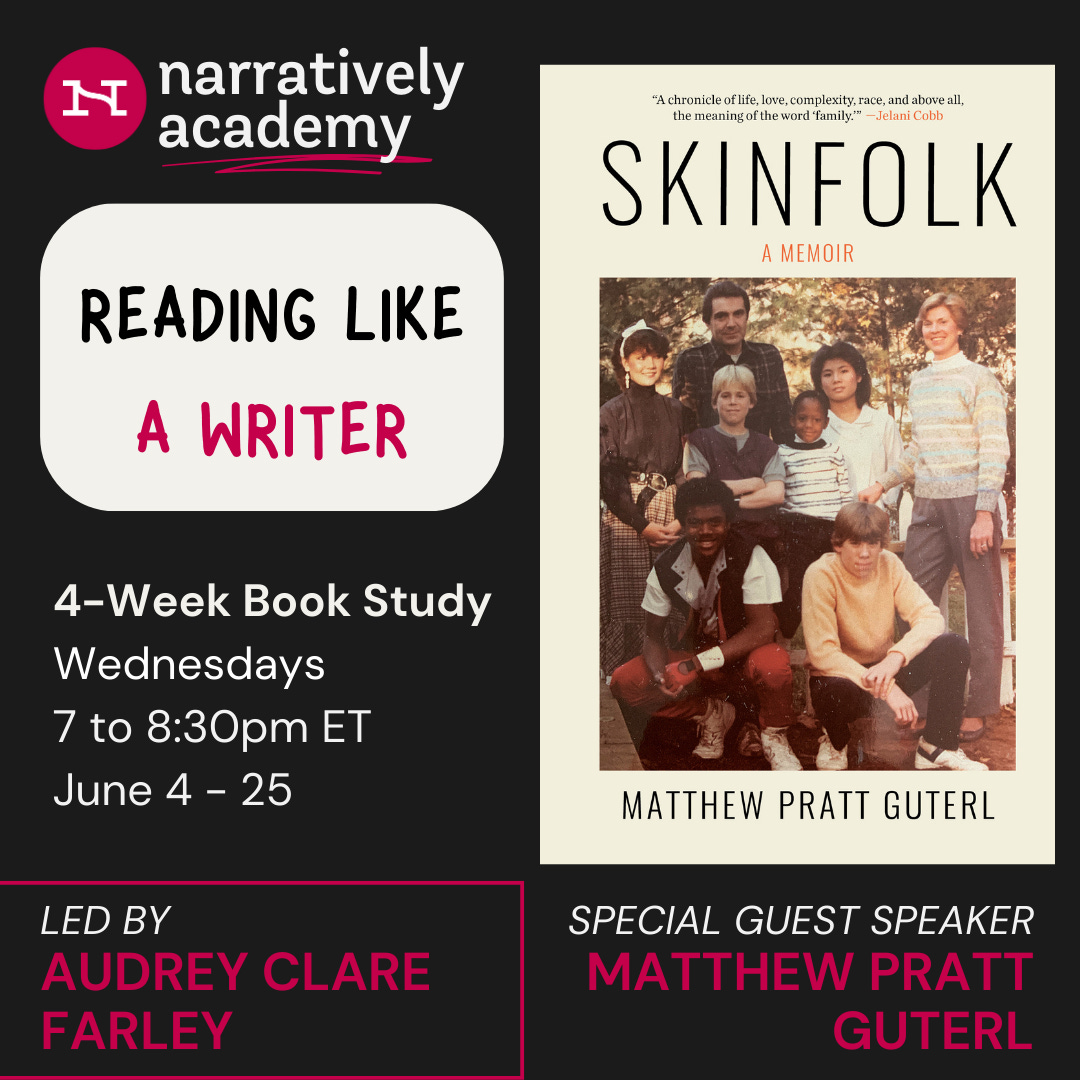The Radical Family Experiment Designed to Save the World From Racism
Matthew Pratt Guterl’s book is a riveting tale I couldn’t put down—and a must-read for anyone working on their own memoir.
In 1970, a charming, big-dreaming lawyer believed that he could solve the problem of racism in America. Bob Guterl and his wife would create a family like Noah’s Ark. They’d adopt “two of every race” and show the world that skin color didn’t matter. If at first this Biblically-inspired venture seemed swell, the picturesque family behind the white picket fence soon began to unravel. In the end, according to one of Guterl’s biological children, “memories of the idyllic undertaking were marred by tragedy.”
This is the fascinating story that Matthew Pratt Guterl tells in his memoir, Skinfolk. From the moment I learned of this book, I was intrigued. I, too, grew up in two kinds of time. One was terrestrial, involving Full House and American Girl dolls. The other was celestial, evoking ancient people and prophecies. My family was part of a Pentecostal Catholic community whose leaders spoke in tongues just like the apostles are said to have done on the first Pentecost. And I, too, inherited origin stories about America, seeing it as a New Israel, favored by God and with a special role to play in the divine saga.
Guterl’s memoir offers a framework for thinking about the ways that founding myths shape psyche and society. I often recommend Skinfolk to other writers, both for this framework and because it tells the truth about family with love. If Skinfolk’s intellectual heft comes from the author’s patient probing of lore, its moral triumph stems from his ability to portray family members as real people—with charms and foibles, with good intentions gone wrong. It’s a stirring example for anyone who wants to write a story as compassionate as it is honest.
That’s why I picked Skinfolk to launch our new Reading Like a Writer class. Over the course of four weeks, everyone in the class will read the memoir, and in four intimate class sessions we’ll closely explore the themes and writing approaches found in the book, dissecting the author’s choices regarding voice, time, characterization, point of view, theme and motif. We’ll also have craft exercises that give writers a chance to experiment with different literary devices in their own works-in-progress. In the fourth and final session, Matthew Pratt Guterl will visit class to discuss the book and field questions about writing it, and writers will put the techniques studied in class into action by submitting up to 15 pages of their own book-in-progress or personal essay.
There are a few seats left in this class—if you’re interested, sign up soon so you can start reading the book before our first class session on June 4!
PS: Just here to read stories? If you’d rather not get emails about our class announcements, go to your settings and unselect “Academy” in the notifications section.


